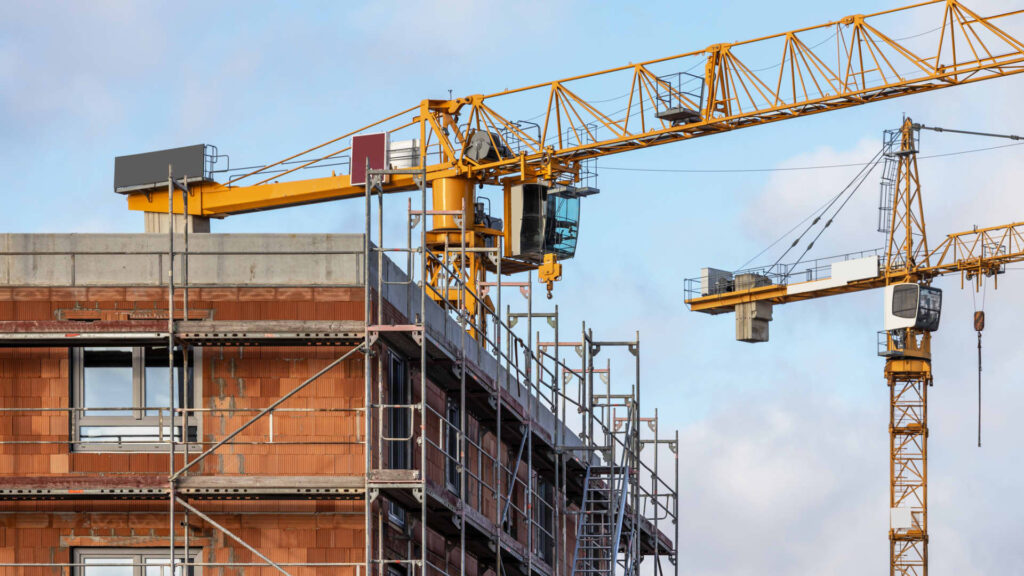Construction site of a residential building with scaffolding and large crane
FM | Moment | Getty Images
Despite months into crisis and government pledges of support and investment, Germany’s construction industry has shown no signs of recovery.
Carsten Brzeski, ING’s head of global macro research and chief economist for Germany, told CNBC that recent economic data shows the industry remains in a “bleak situation.”
According to the latest building permit data released last week, the number of new building permits fell 24.2% in May compared with the same month last year and nearly 40% compared with May 2022.
Data shows that from January to May this year, the number of single-family residential permits fell by more than 31% compared with the same period last year, and the number of multi-family residential permits fell by more than 21%.
Felix Pakleppa, president of the Central Association of the German Construction Industry, pointed to the bleak prospects for the industry.
“Building permits in Germany still only know one direction: down,” he said, pointing to data that did not reflect growth since April 2022.
Home construction typically takes about two years from the issuance of permits to the final stages, so the lack of permits now will continue to have an impact, he said.
“You don’t need a degree in statistics to realize that Germany is entering a serious housing construction crisis,” Paklepa said in a statement released last week and translated by CNBC.
long term problem
Germany’s housebuilding industry has been struggling for some time, with confidence and expectations for the sector hitting record lows earlier this year. Broader economic trends such as inflation and rising interest rates have been weighing heavily on the industry.
Brzeski said the underlying reasons for the decline in permits have not yet been alleviated and won’t be any time soon. He added that interest rates were unlikely to fall significantly and that issues such as construction costs and labor shortages remained.

Klaus Wohlrabe, head of surveys at the Ifo Institute of Economics, also believes that the lack of orders is expected to continue for some time. He said the high cost of building homes for private households remained a “fundamental issue”.
Government pledges support
The German government pledged in its 2025 budget to increase investment in the sector and build more homes. Highlights include increasing funding for affordable housing, social housing and providing financial support for private households to build climate-neutral homes.
But so far, the government’s approach has had “little effect,” ING’s Brzeski said, adding that the new measures did not appear to hold much promise.
“The new measures are once again moving in the right direction, but are still too small to be a real game changer,” he said.
Brzeski said increased government spending and temporary measures to boost the industry, such as tax cuts or lower transaction costs, would be needed to really make a difference.
Volrabe believes that the current government’s promises are just promises because there is still uncertainty about how they will become reality. He explained that this leaves companies with little basis for future planning, especially since budget-related measures may only apply for one year rather than the long term.
“Business sentiment in general is very bad. There may be a slight improvement, but the bottom is deep,” Volrabe said.

